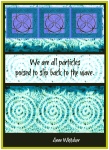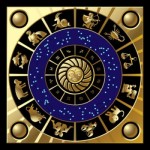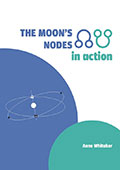We live in a vast energy field of constant motion, most of which is invisible to us. The rippling patterns of order and chaos, which is the fundamental dance of creation, govern everything. I have come to see the art of astrology (helped by what I have grasped of what the quantum world has revealed to us) as one that enables us to map those patterns via the constant shifting energies of the planets in their orbits.
words by Anne Whitaker
Astrologers take a step that, in our reductionist, materialist culture, pulls down all sorts of opprobrium and scorn upon our heads: We attribute meaning to those patterns. Beginning in ancient times until the Scientific Revolution of the 17th Century (which caused a split between form, described by astronomy, and content, described by astrology), the maxim “as above, so below” governed people’s worldview. Prior to the Scientific Revolution, we lived in a cosmos charged with meaning, an “ensouled” cosmos, where form and content reflected and informed each other.
Astrology and prejudice
Some of us still live in that cosmos. Others do not. Where you have such a powerful clash of worldviews, polarisation and prejudice can arise. I think that Victor Olliver, editor of the UK’s respected Astrological Journal, was right regarding his eloquent and well argued response to my doubts and questions about popular astrology in the spring of 2015. At that time, he pointed out that the real enemy of astrology is prejudice. There is the prejudice from outside the astrological community (especially from much of the scientific community) from those who believe that our lives are the product of cosmic chance, and thereby devoid of meaning. And then there is the prejudice from those within the community — those who consider themselves to be “serious” practitioners — toward the populist, mass-market astrology that millions avidly consume across a vast range of media on a daily basis, looking for some glimmer of meaning in life.
What do we do about this? In reflecting on how I might “wrap up” Victor’s and my three-part debate, which generated a great deal of interest across the Web, the word “occult” came strongly to mind.
I pondered it for a few days. According to the Shorter Oxford English Dictionary, the original meaning of the word is from the Latin “occulere,” i.e. “to hide, conceal.” It also (in a more physical sense) means “to cut off from view by interposing some other body,” as in, for example, the occultation of one planet or heavenly body by another.
Is astrology an “occult” practice?
The word “occult” in recent times has taken on a more sinister connotation, referring often to magical or supernatural practices of a dubious nature. As I reflected on it, I became more interested in the original meaning of the word, which has led me to a conclusion about the status of astrology, especially in our modern world: The true depth of what astrology can reveal about human affairs, both in the collective and the personal sense, will always be inaccessible to the large majority of people. Astrology is an occult subject. As such, its influence and its great value are likely to remain masked, hidden from view, operating powerfully but behind the scenes of everyday life.
For example, in ancient times its practice was held in high esteem by Babylonian and Egyptian rulers, whose astrologer-priests scanned the stars and advised the kings (and sometimes, even, the queens!) on the fate of their nations. There were no personal horoscopes. The general public was in no way consulted or informed regarding decisions made that affected all their lives. Astrological knowledge, deemed sacred, was deliberately kept hidden from ordinary view.
Paradoxically, in our time, mass-market popular astrology could be seen as fulfilling the function of concealing the real power of astrology quite effectively. Most of the public remain unaware of the depth that exists behind the mask of the Sun Sign columns, although I do agree with Victor that there is a very big difference between the nuggets of truth that a quality Sun Sign column can reveal and the kind of trashy stuff that some popular newspapers, magazines, and internet sites churn out.
A warning ignored
Sun Sign columns are also rather effective in raising the ire and spleen of reductionists who thereby are permanently deflected from benefiting from astrology’s true depth, which at times could have been life-saving as evinced in the powerful example of astrologer Dennis Elwell’s prescient warning in the 1980s.
In 1987, Dennis Elwell, the late well-known U.K. astrologer, wrote to the main shipping companies to warn them that a pattern very similar to that under which the Titanic had sunk was coming in the heavens very soon. He strongly suggested that they review the seaworthiness and safety procedures of all their passenger ships. His warning was duly dismissed. Not long afterwards, the U.K.’s Herald of Free Enterprise ferryboat went down, resulting in the loss of 188 lives.
Popular astrology—a stepping-stone?
It is true, as Victor pointed out in his robust reply to my challenge, that mass-market astrology is the stepping-stone that enables people who are seekers after deeper meaning to step from relative triviality to much greater depth.
However, to understand the profound link that exists between your unique chip of energy and the larger, meaningful cosmos, you will need to seek out a good astrologer to offer you a sensitive and revealing portrait of your moment of birth via your horoscope. Those of us who are in-depth practitioners know that a quality astrology reading with the right astrologer at the right time can be truly life changing.
Only a small percentage of people who read Sun Sign columns take that step into deeper territory. Most do not. Either they are quite happy with the superficiality they find there, or they spin off into active enraged prejudice, and sometimes very public condemnation, of our great art…
As I said to Victor Olliver by way of conclusion to our most instructive debate, pondering on the word “occult” has led me to quite a peaceful place. I can now abandon any prejudice I may have toward my colleagues who are Sun Sign astrologers: they are offering a valuable service in providing a smoke screen. This helps greatly to maintain astrology in its true place as an occult activity, perhaps leavening the ignorance and crassness of our materialist, consumer age — but from behind the scenes.
Concluding thoughts from academe
I have recently been re-reading an excellent book by astrologer, teacher, and writer Dr. Bernadette Brady, Chaos, Chaosmos and Astrology. In her book, Brady quotes fellow astrologer and academic Dr. Patrick Curry’s view that the practice of astrology is “…an instrument of enchantment, a way in which humanity encounters mystery, awe, and wonder….,” and that in order to maintain such a position it is “…necessary for astrology to be marginalised by science…” (1)
I was very happy to encounter this viewpoint put forward by fellow astrologers whose scholarship and viewpoints I respect. Their views have eloquently endorsed my own.
What do you think of this viewpoint, readers? I’d be most interested to hear.
Footnote:
(1) Bernadette Brady, Cosmos, Chaosmos and Astrology, Sophia Centre Press, 2014, p 71.
(This post was most recently published in May 2016 as “Some thoughts on astrology’s place in the contemporary world” on The Mountain Astrologer Blog)
(Please Note: any offensive comments will be ruthlessly binned)
Zodiac
********
1200 words copyright Anne Whitaker 2015/2017
Licensed under Creative Commons – for conditions see Home Page























































Anne, this is fabulous. I enjoyed it very much. I love and am most intrigued by astrology as I ever so slowly try to put the pieces together. Clearly I pursue this as an avocation. I appreciate your perspectives very much, as a part of my process.
LikeLike
Carrie, thanks for your kind words. I am delighted to be helping you in some small way to put these intriguing pieces together!
LikeLiked by 1 person
30.3.17:
Via Facebook:
Margo Cline:
Thank you for sharing this, Anne. I came to want to learn the deeper mysteries of astrology through a reading from a wonderful astrologer. I wanted to connect with the meaning and purpose of my life and the reading provided that in surprising ways that I wanted to explore further. I think most people don’t realize how embedded astrology is in our history and how we can connect with those universal energy patterns.
LikeLike
Many thanks for this thoughtful personal feedback, Margo!
LikeLike
30.3.17:
Via Facebook:
Tim Burness:
Big old topics there, Anne, got me thinking a bit, thanks. My own experience was that Sun sign horoscopes put me off the whole of astrology for many years. Prejudice? Just not very helpful or even entertaining, for me anyway 🙂 Astrology’s place in the modern world is surely changing very quickly, mainly due to the internet. On my return to astrology (it was on the back burner for roughly ten years) I immediately noticed a massive increase in the number of people with at least a minimal knowledge of their charts, planets in signs etc. I honestly think the days of it as “occult” are fast on the way out, if not already gone. We shall see…
LikeLike
Thanks, Tim! Happy to have made you think… maybe you are right – maybe what you are describing is a step forward from the sun sign stuff, while still remaining in pretty shallow waters. My concern regarding what you describe, is that ‘a little knowledge is a dangerous thing’. There are plenty of people about – just have a trawl round the web – who opine from that level, and probably do a lot of misleading damage in the process…
LikeLike
31.3.17:
Via Facebook:
Tim Burness:
Yes, absolutely Anne, difficult to know what’s really going on in terms of degradation as a result of the internet – so much dodgy rubbish right next to great stuff from top class astrologers in many Google searches. What is the quality of consciousness? Can people tell the difference – can I? How much does that matter? But I’m not convinced by the Patrick Curry quote as regards enchantment and scientists. I have quite a few friends with scientific backgrounds (including an ex-student of mine with a physics degree who is a highly accomplished astrologer) who are fine with it. Perhaps they are the exception…
LikeLike
Yes, I think they are. Reductionism has got most of the rest by the throat ( or some other vital part) and squeezed out the broader implications of science’s own perception that matter (as far as we know from quantum physics) occupies only 4% of the vast energy field that is the universe, leaving 23% dark matter and 73% dark energy which is as yet inexplicable … you would think that those ‘facts’ ( for all is but a woven web of guesses, in the end, as Xenophanes pointed out many centuries ago) would engender at least a modicum of humility regarding that vast territory which reductionism is unable to account for. Do NOT get me started….( too late, already!)
LikeLike